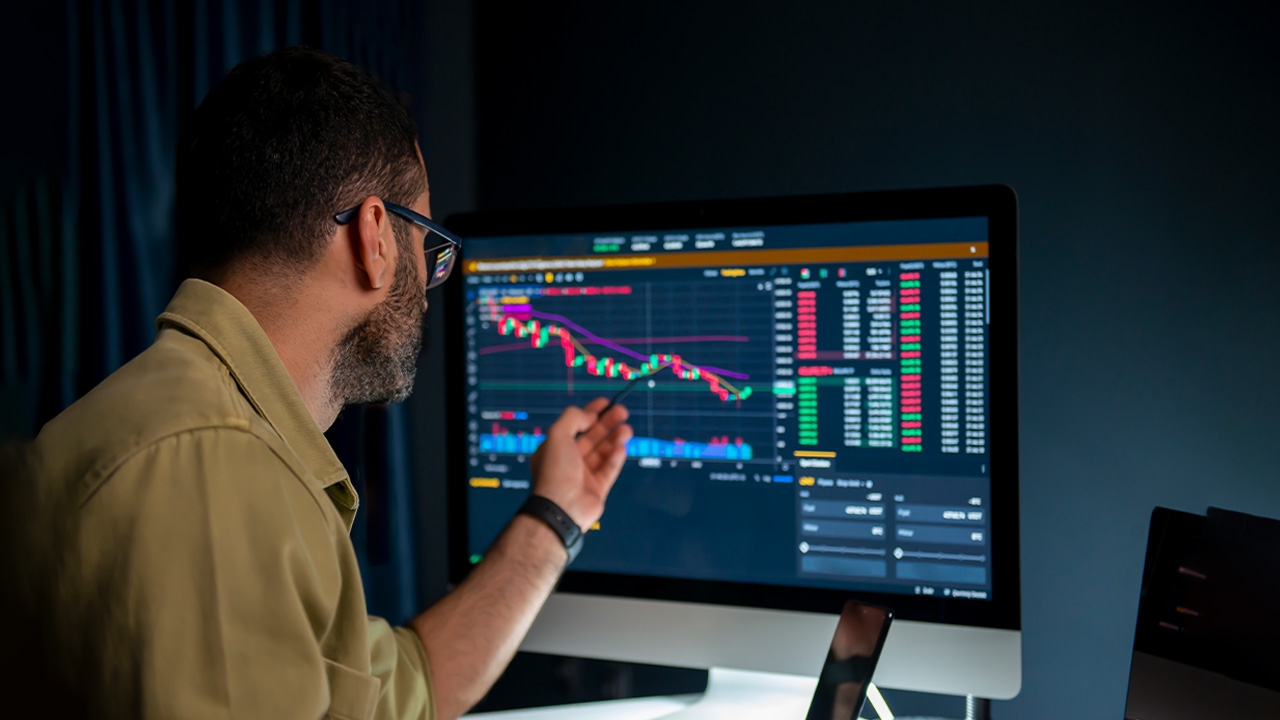Did you find this article useful?

Stock market fluctuations can impact even the most solid investment plans. Here, we explore market volatility and share some tips on how you can handle these periods of uncertainty.
Volatility is the measure of how quickly the markets move and how much this causes the value of your investments to jump around.
There's been a lot of change across the world in the last couple of years. So stock market fluctuations are no surprise. Values have risen and fallen sharply in short periods of time.
No matter how experienced you are in investing, market volatility can be uncomfortable. However, having a clear objective and investment strategy can help you navigate these periods of uncertainty.
Market movements are influenced by many factors, as analysts and investors process vast amounts of information to predict portfolio impacts and market trends. These shifting estimates and decisions lead to market fluctuations.
Volatility can also occur during global events like pandemics, wars, or natural disasters, which can disrupt the supply of key resources.
Don't let this recent market volatility deter or scare you into making rash decisions. You can't control markets, but you can control how you invest – remember to stick to your financial goals.[@article-keepcool-study] – Donahue D'Souza, Head of Investments at HSBC Australia
As an investor, you can't avoid market volatility. But keeping these 6 principles in mind could make the ride feel less bumpy:
Short-term volatility doesn't always affect the long-term growth of your investment. So, it may help to focus on those long-term goals during volatile periods.
Riding these short-term fluctuations could bring positive returns when you look further ahead. Recovery may be quick but can sometimes take longer, so you should really be looking to keep your money invested for a longer time frame.
Always remember that investing comes with risk, so you may not get back what you put in. And past performance isn’t a reliable indicator of future performance.
When markets get rocky, it can be tempting to sell to avoid further losses. If you believe that there's a fundamental flaw with your investment's future value, then it may make sense to adjust and rebalance your portfolio.
Before you invest, consider saving money in an emergency fund of 3 to 6 months' worth of living expenses. That way, you can handle any unexpected costs without having to sell your investments during a downturn.
If you can afford to stay invested, you'll give your investments more time to potentially recover and grow.
Not all types of investments are affected the same during periods of volatility.
By combining different types of investments, you could potentially lower your overall risk of loss. That's because a lower return in one type of asset, like equities, may typically be compensated by a gain in another type, such as bonds. This is called portfolio diversification.
Don't be passive in the face of market declines. When market sentiment is low, valuations tend to be driven down which provides investment opportunities. In rising markets, people tend to invest as they chase returns, while in declining markets people tend to sell. When investors overreact to market conditions, they may miss out on some of the best-performing days.
If the local market is experiencing a downturn, investing in international shares may boost your portfolio and spread your risk across a range of assets.
Investing regularly means putting money into the market consistently, no matter how it's performing.
With fixed regular investments, you buy more units when prices are low and fewer when prices are high. This helps smooth out your investment journey, averaging the purchase price and reducing the risk of investing a lump sum at the wrong time, especially during market volatility.
A longer investment timeframe is even better, as it gives your money more time to grow through the power of compounding.
Dealing with market volatility can be tricky, but you don’t have to do it on your own. A study by HSBC Australia found that financial advisers are the most trusted resource for Australian investors.
Investment experts and active funds can help protect your money by reducing risks and making smart changes. They keep a close eye on what causes market volatility and take actions like shifting investments or spreading them out to keep your portfolio safe and growing.
Investing and volatility will always go hand in hand. But keeping these 6 principles in mind could help to lessen the impact if and when the markets drop.
HSBC WorldTrader gives you access to over 30 global markets. Learn to trade like an expert and invest with the latest financial insights. You must be over 18 years old and hold an eligible HSBC account to apply for HSBC WorldTrader.
Did you find this article useful?


